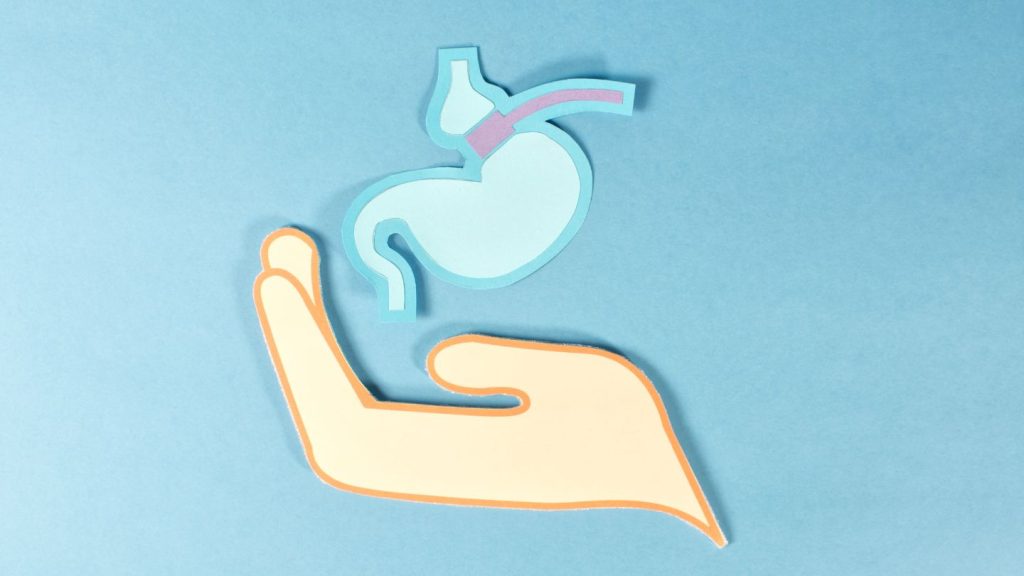
What BMI Is Required for Gastric Sleeve for Effective Weight Loss Solutions
Are you wondering if you qualify for gastric sleeve surgery? Understanding the bariatric surgery requirements is the first step toward transforming your health. This blog will guide you through the body mass index (BMI) criteria and other essential factors to determine eligibility for this life-changing weight loss surgery.
Key Takeaways
- BMI Requirements: A BMI of 35+ or 30-35 with an obesity-related condition qualifies for gastric sleeve.
- Health Benefits: Improves conditions like diabetes and hypertension while aiding weight loss.
- Personalized Care: Lenox Hill offers tailored treatment plans and long-term support for optimal outcomes.
Understanding BMI for Bariatric Surgery
BMI, or body mass index, is a reliable indicator used to assess body fat based on weight and height. It plays a crucial role in determining eligibility for weight loss options like gastric sleeve surgery. Here’s how BMI is classified:
- BMI of 18.5–24.9: Normal weight
- BMI of 25–29.9: Overweight
- BMI of 30 and above: Obese
For bariatric surgery, a BMI of 35 or higher generally qualifies patients. However, individuals with a BMI between 30 and 34.9 may also be eligible if they have an obesity-related condition like diabetes, high blood pressure, or sleep apnea.
What BMI Do You Need for Gastric Sleeve Surgery?
To undergo gastric sleeve surgery, candidates must typically meet the following weight loss surgery requirements:
- BMI of 35 or higher, regardless of other conditions.
- BMI between 30 and 35 with obesity-related health problems, such as:
- Diabetes
- Sleep apnea
- High blood pressure
These thresholds ensure that the procedure addresses severe health risks associated with obesity.
Why BMI Matters in Weight Loss Surgery?

BMI isn’t just a number; it’s a reliable indicator of overall health. It helps determine the severity of obesity, offering insights into associated health problems like:
- Heart disease
- Diabetes
- Sleep apnea
At Lenox Hill Bariatric Surgery Program, we carefully assess each patient’s BMI and medical history to design a treatment plan tailored to their unique needs, helping them achieve their weight loss goals safely.
Bariatric Surgery Evaluation Process
The bariatric surgery evaluation process is a crucial step in determining whether weight loss surgery is right for you. This comprehensive assessment ensures that you meet the necessary criteria and are prepared for the journey ahead. Here’s what you can expect:
- Initial Consultation: Your journey begins with an initial consultation where you’ll meet with a bariatric surgeon or a member of their team. This meeting is an opportunity to discuss your weight loss goals and explore whether weight loss surgery is a suitable option for you.
- Medical History: A thorough review of your medical history will be conducted to identify any existing health conditions that could impact your eligibility for bariatric surgery. This step helps you understand your overall health profile.
- Physical Examination: A physical examination will be performed to assess your general health and identify any potential risks. This examination is essential to ensure you are physically ready for the surgery.
- Blood Tests: Blood tests are ordered to evaluate critical health markers such as blood sugar levels and liver function. These tests provide a detailed picture of your internal health and help you plan your weight loss surgery.
- Imaging Studies: Imaging studies, such as X-rays or CT scans, may be required to examine your digestive system. These studies help identify any anatomical issues that need to be addressed before surgery.
- Psychological Evaluation: A psychological evaluation is an important part of the process. It assesses your mental health and readiness for the significant lifestyle changes that come with weight loss surgery.
- Nutrition Counseling: You will meet with a registered dietitian to discuss your current eating habits and develop a personalized nutrition plan. This step is crucial for preparing your body for surgery and ensuring long-term success.
- Insurance Verification: Finally, your insurance coverage will be verified to ensure that you have the necessary coverage for weight loss surgery. Understanding your insurance policy helps you plan the financial aspects of your surgery.
This thorough evaluation process ensures that you are well-prepared and eligible for weight loss surgery, setting the stage for successful weight loss outcomes.
Steps to Prepare for Gastric Sleeve Surgery

Preparation is a key element of successful weight loss surgery. Here’s how our team supports patients on their journey:
- Comprehensive Evaluation: Assessments of medical conditions like diabetes and hypertension. Mental health evaluations to ensure emotional readiness for the lifestyle changes ahead.
- Pre-Surgery Weight Loss Goals: Patients are encouraged to lose weight through supervised dietary changes and physical activity.
- Customized Treatment Plan: Collaboration with a primary care provider, nutritionist, and mental health specialist.
- Digestive System Education: Guidance on eating patterns to prepare the body for surgery and improve weight loss outcomes.
This comprehensive approach ensures the best possible outcomes for every patient.
The Health Risks of Severe Obesity
Severe obesity (BMI of 40 or higher) significantly impacts health, increasing the risk of chronic conditions such as:
- Type 2 diabetes
- Heart disease
- Sleep apnea
Through bariatric surgery, patients can address these risks, improve their overall health, and achieve their ideal body weight.
Conclusion
In conclusion, recognizing the BMI requirements and health benefits associated with gastric sleeve surgery is essential for those aiming to achieve significant weight loss. Meeting these criteria can lead to improved health and successful weight management.
At Lenox Hill Bariatric Surgery Program, we specialize in gastric sleeve services for NYC residents. Our expert team provides a holistic approach, offering personalized care plans, collaboration with healthcare professionals, and ongoing support to ensure optimal results for each patient.
Ready to take the first step towards a healthier you? Contact us today to explore how we can support your weight loss journey.
Frequently Asked Questions
Can I get a gastric sleeve if I weigh 200 pounds?
Eligibility for gastric sleeve surgery depends on your BMI score rather than just weight. Consult with your primary care provider to determine if you meet the weight loss surgery requirements.
How can I get approved for gastric sleeve surgery?
To get approved, you need to meet specific bariatric surgery requirements, including a qualifying BMI and related health problems. Collaborating with your healthcare team to document these medical conditions is essential for insurance coverage.
What are the benefits of gastric sleeve surgery for severe obesity?
Gastric sleeve surgery can significantly reduce body mass index, leading to improved health outcomes. It addresses severe obesity by helping patients lose weight and manage obesity-related conditions like sleep apnea and high blood pressure.